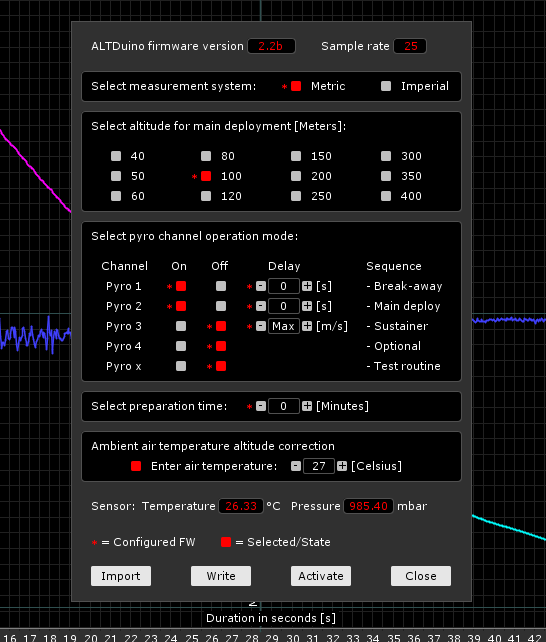bdureau
Well-Known Member
- Joined
- Dec 20, 2011
- Messages
- 539
- Reaction score
- 246
A note on this:
I have been using this method on my own built altimeters for some time. While the altitude measurements are more precise, they are still off because you are measuring temperature differences inside the ebay. If you really want precision then you need to have a temperature probe outside of the rocket and shielded from sunlight.
Also, at times I had the impression of people not really trusting my altitude readouts because they were off compared to commercial altimeters.
I have since made it possible via my UI software that one can choose to ignore or select "Ambient air temperature altitude correction". For most flights I elect to ignore this option simply for better mainstream comparisons

Leo
This is a very nice user interface. Is it .net? Java?






